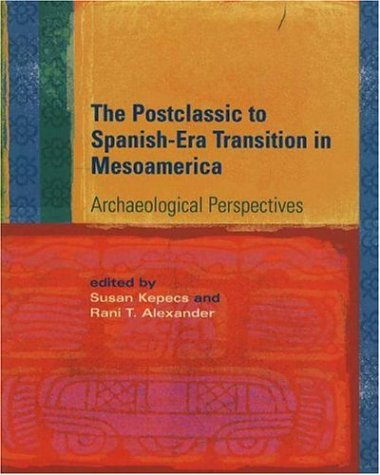

Most ebook files are in PDF format, so you can easily read them using various software such as Foxit Reader or directly on the Google Chrome browser.
Some ebook files are released by publishers in other formats such as .awz, .mobi, .epub, .fb2, etc. You may need to install specific software to read these formats on mobile/PC, such as Calibre.
Please read the tutorial at this link: https://ebookbell.com/faq
We offer FREE conversion to the popular formats you request; however, this may take some time. Therefore, right after payment, please email us, and we will try to provide the service as quickly as possible.
For some exceptional file formats or broken links (if any), please refrain from opening any disputes. Instead, email us first, and we will try to assist within a maximum of 6 hours.
EbookBell Team

4.8
104 reviewsIn this volume, thirteen anthropological archaeologists working in historical time frames in Mesoamerica, including editors Susan Kepecs and Rani Alexander, break down the artificial barrier between archaeology and history by offering new material evidence of the transition from native-ruled, prehispanic society to the age of Spanish administration. Taken together, the chapters contained herein cover most of the key Mesoamerican regions that eventually came under Spanish control.
The authors bring new empirical information to bear on the problem of how prehispanic social, political, and economic organization were transformed, as independent Maya kingdoms, the Aztec empire (with its client states), the Tarascans, and other more distant polities once linked through the macroregional economic web of the Postclassic period were forcibly incorporated into Spain's transatlantic domain. The complex processes of multidirectional interaction and culture contact among Mesoamericans and Europeans are colored by cultural diversity, culture clash, and varied responses ranging from accommodation to resistance to active rebellion. These case studies also illuminate how native organization altered the Spanish imperial process. Ultimately, this volume provides a link between past and present, since Mesoamerican peoples continue to negotiate the effects of globalization on their societies. Susan Kepecs is an honorary fellow in the department of anthropology at the University of Wisconsin-Madison. Rani T. Alexander is an associate professor in the department of sociology and anthropology at New Mexico State University, Las Cruces.